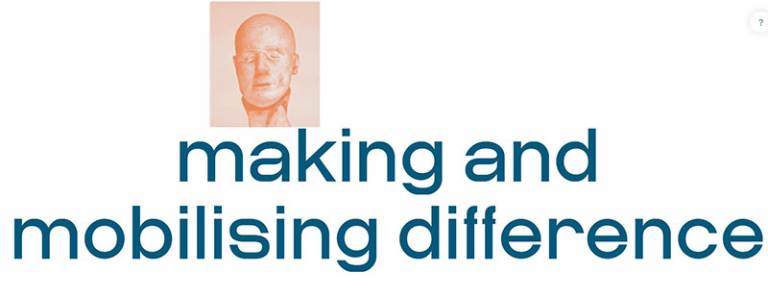Making and Mobilising difference: virtual exhibition on history of eugenics
12 July 2021
A virtual exhibition on the history of eugenics featuring the work of staff and students from the UCL Institute of Archaeology and Sarah Parker Remond Centre for the Study of Racism and Racialisation was launched recently.

MA in Museum Studies students at the UCL Institute of Archaeology have contributed to the virtual exhibition, which is concerned with the history of eugenics and scientific racism at UCL and beyond.
The exhibition, Making and Mobilising Difference: Histories of eugenics and scientific racism at UCL and beyond, told through objects in its collections, is curated by Subhadra Das (former Researcher in Critical Eugenics at the Sarah Parker Remond Centre for the Study of Racism and Racialisation in the Institute of Advanced Studies and a former Curator of UCL Science Collections) and Rodney Harrison (Professor of Heritage Studies, UCL Institute of Archaeology) and draws on work by MA Museum Studies students undertaken between 2012 and 2021 as part of the module ARCL0132 Collections Curatorship.
The exhibition website is jointly hosted by the Sarah Parker Remond Centre for the Study of Racism and Racialisation, and the UCL Institute of Archaeology. Although the research precedes and has been undertaken independently of it, the exhibition responds to some of the recommendations of the recent Inquiry into the History of Eugenics at UCL, its public apology for its role in the development, propagation and legitimisation of eugenics and the denaming of spaces on campus named after the prominent eugenicists Francis Galton and Karl Pearson (and active discussions relating to those named in honour of Flinders Petrie).
The exhibition aims to show how the histories of the historical and social sciences-including archaeology and anthropology-and the institutions through which their disciplinary authorities were established (such as museums)-are integrally connected with the development of concepts which aimed to make differences in human populations visible and actionable as parts of broader programmes of liberal (and illiberal) social government. Alongside systemic prejudice and inequality, these social governmental programmes continue to affect the lives of millions of people in the world today.
In 2018, UCL's previous President & Provost, Professor Michael Arthur, commissioned an inquiry led by Professor Iyiola Solanke of the University of Leeds, to look at UCL’s historical role in, and the current status of, the teaching and study of the history of eugenics, as well as the current status of UCL’s benefit from any financial instruments linked to the study of eugenics.
The Inquiry's report and its recommendations were published on 28 February 2020 and accepted in principle by the previous Provost. UCL has established a working group to consider how the university can respond to the recommendations. On 7 January 2021, UCL issued a formal public apology for its history and legacy of eugenics, as part of a range of actions to acknowledge and address its historical links with the eugenics movement.
 Close
Close

